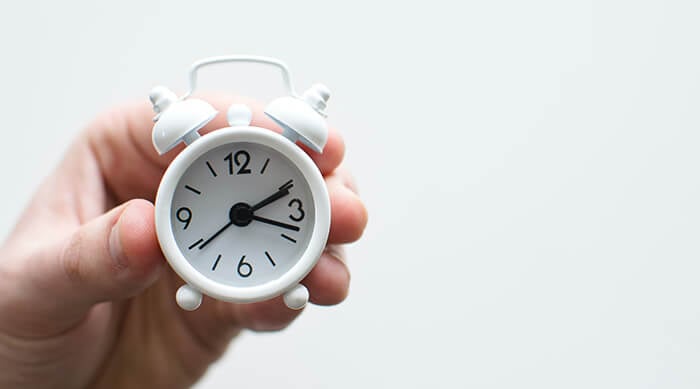Wine works just like any other type of alcohol after it passes your lips. It moves through your digestive system and other organs, including the all-important liver, where it starts to metabolize.
Most experts say an adult male can metabolize wine and other alcohols at a rate of about one standard drink per hour. The thing is, drinking habits vary from person to person.
How your body metabolizes that wine will differ from the next wine drinker.
How long does wine stay in your system? As with pretty much anything, it depends. Whether you’re sober curious, or just looking to cut back, it’s good to understand how your body reacts to wine.
How long does wine stay in your system? By Body System
How long wine stays in your body depends on the body system we’re looking at. How you measure alcohol in the body also matters because some alcohol tests are more sensitive than others.
Let’s take a closer look at how long wine stays in your system based on the body system and the types of alcohol detection methods used to get these numbers.
Body System Time in Your System Test Used
Breath 12-24 hours Breath tests, like breathalyzers
Blood 6 hours Blood test
Urine 12-24 hours (see below) Urine test
Saliva 12-24 hours Alcohol saliva strip tests
Hair Up to 90 days Hair tests
How long does wine stay in your urine? Wine stays in your urine for an average of 12-24 hours. There are advanced urine tests out there that may be able to detect alcohol in your urine for 72 hours or more.
These ethyl glucuronide (EtG) tests work by looking for ethanol metabolites in your urine. They are much more sensitive than simpler urine or blood tests.
How does the body metabolize alcohol?
The body metabolizes alcohol thanks to an enzyme in your liver called gastric alcohol dehydrogenase. After that first sip, your digestive system begins metabolizing the wine.
As this is happening, the alcohol from your wine travels to your bloodstream and other organs, like your brain and the small intestine. If you’re drinking on an empty stomach, the alcohol doesn’t meet any barriers along the way.
Your liver gets to work from there, removing as much as possible from your bloodstream. In chronic drinkers, the liver works overtime, but it can’t work at peak levels forever in anyone.
Several factors can affect how quickly your body metabolizes alcohol:
- Age: The older we get, the harder it gets for our bodies to metabolize alcohol.
- Body fat: A higher body weight means a higher body water content. A body with a higher body water content dilutes alcoholic drinks more efficiently.
- Gender: On top of body weight, women get intoxicated faster because of lower levels of enzymes in the liver and hormonal fluctuations.
- Drinking on an empty stomach: Eating before drinking can help your body absorb alcohol better. (Carbs are better at this than fats.)
- Certain medications: Be aware of any medication interactions before you start drinking. This includes some painkillers, too.
- Existing health conditions: Some pre-existing liver or stomach conditions affect how your body interacts with alcohol. Talk to your healthcare provider if you have any questions.
- Rate of consumption: The faster you drink, the higher your blood alcohol content (BAC), or blood alcohol level. Sip, don’t chug, and avoid binge drinking.
- Amount of alcohol consumed: Two glasses of wine will take longer to metabolize than one. The more you drink, the harder your body has to work.
The type of alcohol you’re drinking can matter, too. A large glass of wine with a higher alcohol content will hit you faster than a pint of light beer, whether it’s your last drink or your first.
Read Next: Why Wine Causes Bloating & How to Prevent It
How long does it take to feel the effects of wine?
Most adults start feeling the effects of wine within minutes after that first sip. More noticeable effects of alcohol happen around the half-hour mark.
Most women start feeling some level of alcohol impairment after 2 glasses of wine. Men feel the same after around 3 glasses. If you’re drinking wine or an alcoholic beverage with higher alcohol by volume (ABV), you’ll feel the effects of the alcohol sooner.
That can look like a relaxed, “tipsy” state, with lowered inhibitions and slurred speech. Keep in mind that anything beyond a 0.05 BAC means it’s illegal to drive in most states.
Drinking to the point of getting drunk can look like a loss of coordination or confusion. You may experience an increased heart rate and breathing problems. Higher BAC levels above a 0.25 can mean vomiting, trouble staying conscious, and even alcohol poisoning.
It sounds obvious, but the higher your blood alcohol concentration, the more serious the effects of alcohol can get.
How long does a wine hangover last?
How long a wine hangover lasts depends on a few variables, including your gender. Women are more likely to experience hangovers than men, even when they’ve had the same quantity and type of alcohol.
What is the hangover time for wine? The hangover time for wine is usually about 24 hours. Dehydration, drinking on an empty stomach, the amount you drink, and how quickly you drink can all worsen hangovers.
Some wine drinkers may also have a sensitivity to ingredients in wine. That can be the sulfites, clarifying agents used in wine fermentation, or tannins in many bold red wines.
For most, though, wine’s effects are thanks to ethanol. If you like wine but don’t like the effects of traditional wine, dealcoholized versions are a great option.
Is it possible to “sober up fast” with coffee?
This one is a myth. You may feel a jolt of energy from the caffeine in a cup of coffee, but it isn’t going to change how your body processes alcohol or that bottle of wine. The same is true of energy drinks.
Let’s take care of a few other hangover “cures” while we’re at it:
- Eating before you start drinking alcohol has a bigger impact than drinking after too much alcohol.
- Painkillers and alcohol don’t mix. If you’re suffering from the day-after headache, reach for an anti-inflammatory like ibuprofen or other NSAIDS instead.
- Drinking the next morning, also known as the “hair of the dog” method, will only prolong your hangover. It’s also not setting you up for positive drinking practices.
Alcohol and Breastfeeding
If you’re a nursing mom, your safest bet will be to leave out alcohol while breastfeeding altogether. If you’re going to indulge in the occasional drink, it’s important to know how long you should wait after drinking before breastfeeding.
Yes, alcohol can pass to the baby if you’re not careful. No, pump and dump doesn’t work.
The Centers for Disease Control and Prevention (CDC) recommend you wait at least 2 hours after a drink before breastfeeding. Some experts say you should shoot for 3 hours.
We’re talking about one standard drink here. That’s about 5 ounces of your average wine or a regular pint of beer. Any more than that, and you should increase the amount of time you wait before breastfeeding.
You can also plan any light drinking before breastfeeding to reduce risks further. Some studies show that you may experience problems producing milk if you drink too much post-pregnancy.
Benefits of Drinking Less
Let’s say you’re interested in getting on the mindful drinking train. There are all kinds of benefits of drinking less, even not drinking at all if you decide you’re over the effects of alcohol:
- Your liver gets a rest almost immediately after you stop drinking.
- You lower your risk of alcohol-related heart disease and certain cancers.
- You might lose weight. (Alcohol is basically empty calories.)
- It’s easier to manage diabetes if you have it.
- Alcohol is a depressant. Mental clarity and mental health improve when you drink less.
- Your skin gets a glow-up, especially if you’ve been dealing with skin issues.
- You sleep much better without the booze.
- No more hangovers!
Here’s the bottom line: Not drinking at all will always be better for you than drinking. That’s even true if you’re sipping on resveratrol-rich red wine and drinking in moderation.
Getting healthy? Drink real wine without the alcohol.
Moderate drinking is fine for most healthy adults. Red wine, in particular, is known for its health benefits when enjoyed in moderation.
If you’re following medical advice or just want to feel better, cutting alcohol out completely may be the better route for you.
We do need to add here that an alcohol use disorder requires professional help. You shouldn’t detox or treat alcohol addiction on your own.
If you’re worried that you or your loved one are at risk of alcohol abuse, you’re not alone. There is help out there from addiction treatment centers, alcohol rehab programs, and support groups:
- National Institute on Alcohol Abuse and Alcoholism (NIAAA) Alcohol Treatment Navigator
- Substance Abuse and Mental Health Services Administration or call 800-662-4357
- Alcoholics Anonymous
For those who want to cut back for other reasons, Surely non-alcoholic wine is a solid choice. It’s wine for wine lovers who want something different and better for them.
If you want the positive benefits of red wine, try non-alcoholic pinot noir. Feeling festive? Try our non-alcoholic sparkling white.
Sources
- Overview: How Is Alcohol Metabolized by the Body?
- Age, alcohol metabolism and liver disease
- Hangover and Risk for Alcohol Use Disorders: Existing Evidence and Potential Mechanisms
- Alcohol and breastfeeding
- Oxidative stress in alcohol-related liver disease
- Alcohol Consumption and the Risk of Cancer
- Mental health and alcohol use: a cross-sectional study of the Finnish general population
- Alcohol, liver, systemic inflammation and skin: a focus on patients with psoriasis




